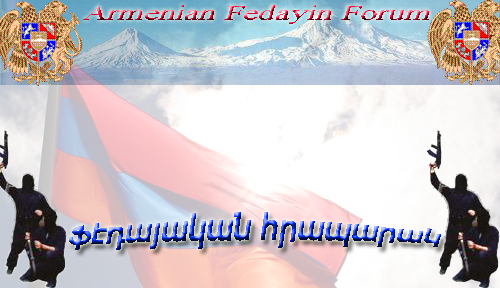Russia signaled on Tuesday its opposition to regime change in Yerevan, with Foreign Minister Sergey Lavrov pointedly declining to deny speculation that Moscow supports Defense Minister Serzh Sarkisian’s apparent plans to become Armenia’s next president.
Lavrov, in Yerevan on a two-day official visit, stressed the need for continuity in policies pursued by the current Armenian leadership. During a joint news conference with Foreign Minister Vartan Oskanian he was asked to comment on growing assertions by Russian media and prominent analysts that the widely anticipated handover of power from President Robert Kocharian to Sarkisian suits the Kremlin.
“The official position of Russia coincides with the unofficial position of Russia,” Lavrov replied. “We are sincerely interested in seeing Armenia stable and prosperous and seeing it continue to move down the path of reforms. As far as we can see, the results [of those reforms] are already felt in the socioeconomic sphere.”
“So we wish Armenia success in this endeavor,” he added. “We want the next phase of the constitutional process to lead to the creation of conditions for a continued movement in that direction.”
Kocharian is thought to have enjoyed Russian backing throughout his nearly decade-long presidency. Both he and Sarkisian stand for Armenia’s continued military alliance with Russia, while seeking closer security ties with the West. The Kocharian administration has also helped to significantly boosted Russia’s economic presence in the country in recent years.
The Russian minister’s visit to Armenia was officially dedicated to the 15th anniversary of the establishment of diplomatic relations between the two former Soviet republics. The unresolved Nagorno-Karabakh conflict was high on the agenda of his talks with Oskanian. Russia co-heads the Minsk Group of the Organization for Security and Cooperation in Europe together with the United States and France.
Oskanian told reporters that he and his Azerbaijani counterpart Elmar Mammadyarov will again later this month or early next in a fresh attempt to narrow the conflicting parties’ differences over the Minsk Group’s existing peace proposals. “The goal is to continue to work on the document and to prepare for the likely meeting of the presidents [of Armenia and Azerbaijan] in June,” he said.
The international mediators hope that the Armenian-Azerbaijani summit will yield a breakthrough.
Lavrov said that Karabakh peace is facilitated by what he described as the absence of any differences on the issue between the three mediating powers. “This is probably the only conflict where the interests of Russia, the United States, and the European Union absolutely do not contradict each other and the interests of the conflicting parties themselves,” he said.
Lavrov further assured journalists that his country is trying hard to ease Armenia’s geographic isolation which has been aggravated by the continuing Russian transport blockade of neighboring Georgia. He pointed to the upcoming launch of a rail ferry service between the Georgian Black Sea port of Poti and Russia’s Port-Kavkaz. The ferry link will be primarily used by Armenian exporters and importers.
